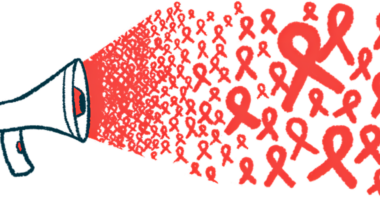Multiple sclerosis awareness is for people with MS, too
Our patient community should be aware of several key points

The Cambridge Dictionary defines awareness as “knowledge that something exists, or understanding of a situation or subject at the present time based on information or experience.”
That definition perfectly matches the stages of my personal awareness of multiple sclerosis (MS). I don’t recall hearing much, if anything, about MS prior to the age of 16, when one of my teachers was diagnosed with it. From that point until my late 20s, you could say I knew only that it existed.
I learned more through information presented in college and military classes before my own diagnosis, and through printed and online resources afterward. Now, although I still rely heavily on information, my awareness is rounded out by 10 years of actual experience — both mine and that of others.
This month has been focused on raising awareness of multiple sclerosis, mainly by enlightening people without MS about the disease, its symptoms, and our lives with them. I wouldn’t ever change that because it’s exactly where the focus should be. However, as Multiple Sclerosis Awareness Month draws to a close, I want to bring up a few things that those of us with MS should be aware of.
What we should keep in mind
First, realize that you may be the first or only person with MS that somebody ever meets. The adage “you never get a second chance to make a first impression” has never been more true. When talking with a person without MS, consider what you’d have wanted someone to tell you during your first encounter. I think the above definition of awareness provides a near-perfect template. You can simply let someone know that multiple sclerosis exists, give some brief information about it, and wrap up with your personal experience.
Those last three words are so important. I frequently harp on this, but know that your personal experience is different from that of any other person with MS. I think that’s always important to point out because the average person tends to think that everyone with MS experiences the same symptoms and disease progression. Everyone should be aware of how unique we each are, but it’s doubly important for someone newly diagnosed.
Be aware of your abilities. Be honest about them, both with yourself and when letting others know about your limits. This includes realizing that yesterday was yesterday, today is today, and your stamina and tolerance have changed in that time. It’s OK (though not always easy) to say no and prioritize yourself. It might feel selfish sometimes, but it’s not. It’s just giving yourself grace.
Understand that as a person with an all-too-often-invisible disease, there will be comments that grate on your nerves and are full of toxic positivity. I really wish that was something we didn’t have to be aware of, but unfortunately, it is. Part of spreading MS awareness is helping to minimize those unhelpful comments, and that means being aware of our responsibility to do so. It bothers me when I bite off my frustration with a forced smile and a muttered “thanks,” instead of saying how I really feel. That’s polite, I guess, but it doesn’t make anyone aware that there’s a problem.
Bottling up frustrations only to take them out on those closest to you is not the answer. Being honest with yourself about your feelings is at least as important as being honest with others. Self-honesty and self-awareness are self-care.
Finally, recognize that it’s OK, maybe even vital, to laugh. For me, that means that it’s OK to be laughed at sometimes, too. If my friends or family treated me any differently than they did before multiple sclerosis entered my life, that would be the worst kind of toxic positivity.
This wasn’t meant to be an advice column. The only reason I was able to list even a few things I think people with MS should be aware of is because they’re things I should be aware of, too. Leave a comment with what you think those of us with multiple sclerosis should understand.
I also plan on making this a thread in the MS News Today Forums. Join me there to continue the discussion, or feel free to start one of your own.
Note: Multiple Sclerosis News Today is strictly a news and information website about the disease. It does not provide medical advice, diagnosis, or treatment. This content is not intended to be a substitute for professional medical advice, diagnosis, or treatment. Always seek the advice of your physician or other qualified health provider with any questions you may have regarding a medical condition. Never disregard professional medical advice or delay in seeking it because of something you have read on this website. The opinions expressed in this column are not those of Multiple Sclerosis News Today or its parent company, Bionews, and are intended to spark discussion about issues pertaining to multiple sclerosis.








Hilary Sexton-Barrow
When I was first diagnosed with MS in 2020 I decided to open up to the world & tell anyone who'd listen.
The first 2 people I explained my diagnosis to quickly interrupted me by saying they already knew someone who had had MS. Eager to hear more I asked both colleagues how the individuals with MS were. On both occasions I was greeted with a, "oh, they died".
You can imagine I was left with an enduring belief that I had a death sentence, supported by the evidence of two conversations.
It is so important to let others know exactly how well you are! Let them have an enduring belief that MS is NOT a killer!
Benjamin Hofmeister
That reminded me of a friend telling me about another guy with MS in the military not long after I was diagnosed. I had to let him know that guy had died from complications of his MS, that it was a horrible example, and to please stop trying to cheer me up.
Lisa Kandel
MS is a tricky disease. You can't see how people are feeling. I've been told, once people know that I have the disease, that I look great. I sure don't feel great a lot of the time. I wish people could see how badly I felt sometimes. I do feel like I have to justify how I'm feeling because I look like there is nothing wrong with me.
Diana Pullos
Your comment ‘yesterday was yesterday’ ‘today is today’ I still have great trouble accepting. I’ve had MS for 41 years, i use a mobility scooter mostly. When I have a bad day I get soooo depressed that I’ve ’degenerated’ permanently only to be ok the next day!!! How do I be gentle on myself ? I’m an all or nothing person so I’m good or bad. I really do need help with this mindset.
Diana
Tom A.
Hi Diana- I’m not a book of statistics, but I’d say for starters, you’ve beat the odds. (I’m 35 years in, myself.) As a former counseling psychologist myself, you might start some brief counseling with someone expert in the situation. I’d work with such a person on coming up with some goals, that is, things you’d like to do or accomplish. From there, you might discover some personality kinds of things the therapist might help you work on. Good luck, it’s not all bad, it’s a mix! Never too late, either.
DANA
I am from Romania. It's pretty bad here. You have to be very sick to make people aware, to see you. / There are always other problems more important than our health problem. I hear a lot: "let's go, you look so good". Here, the pension and allowance are very low and I have to work very hard to afford all the therapy and a modest standard of living. Work is good, but not so good for us. Stress should be avoided to maintain a good mood. Many greetings for your work.
Benjamin Hofmeister
Thank you for reading and commenting Dana! How do you avoid stress?
Tom A
Hi Ben- My “stock” answer, when needed is, “It’s MS, I’ve had it forever, I’ll be OK” In response to a question, it’s usually “It’s very complicated”. MS is even hard to explain to a person with MS! So my awareness tells me not to expect too much when the subject comes up. Explain something briefly if they really really want to know. Otherwise, “I’ll be OK, thanks”.
Related- I first had to distinguish for myself, and then for my family, that MS and the Jerry Lewis MD illness were not the same (Muscular Dystrophy). MD is a much more catastrophic long term thing, and Jerry Lewis had all these people in wheel chairs, mentally challenged, on TV. I think the confusion on that is gone now, but it wasn’t back then (80’s, 90’s).
Benjamin Hofmeister
"I'll be ok".....Not their definition of ok, but ok.
It's odd how our definition of ok has become so flexible.
Thanks Tom
Mike Purcell
Good article. List the resources you find beneficial. That would be a big help for me.